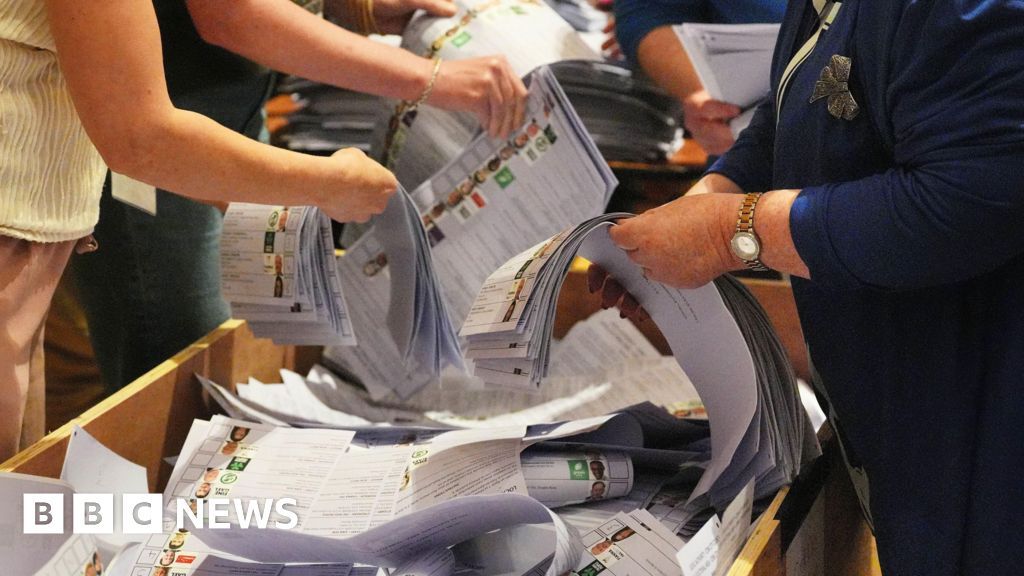Counting is due to get under way in the Republic of Ireland for the European elections, two days after voters took to the polls.
Although voters turned out on Friday, results cannot be released until every country has finished voting later.
Voting began in The Netherlands on 6 June, with 20 other countries heading for the ballot boxes on Sunday.
Fourteen MEPs will be elected across three constituencies to represent Ireland at the next European Parliament.
Five will represent the constituency of Midlands North-West, a 15-county constituency in which 27 candidates ran.
Five will represent Ireland South, where 23 candidates ran across 10 counties.
And four will represent Dublin, where there were also 23 candidates on the ballot.
Why are Ireland’s EU results being counted late?
Some 373 million people across the European Union are eligible to vote in this election.
Together, voters in its 27 member states will elect 720 MEPs. It is the second biggest democratic election in the world after India.
However, under European law, results cannot be announced until all countries have finished voting.
Voting takes place across four days, and began with the Netherlands on 6 June and Ireland on 7 June.
Some countries voted on 8 June and 20 others on 9 June.
Each country is given seats proportionate to their population.
In the next parliament, Germany will have the most amount of seats with 96, whereas Cyprus, Luxembourg and Malta will have six.
Results will be announced after 22:00 BST on Sunday evening.
What about the local elections?
Voters headed to the polls in three elections on Friday.
As well as picking candidates to send to the European Parliament, they voted to elect a swathe of new councillors and, for the first time, some were asked to decide on a directly-elected mayor to represent them.
More than 2,100 candidates had been selected or declared to fill a total of 949 city and county council seats across 31 authorities.
But our reporter Kevin Sharkey, who has been at a count centre in Dublin, said the first day of counting had already provided a clear direction of travel in terms of winners and losers.
The two main coalition government parties, Fianna Fáil and Fine Gael, are expected to lose seats, but they can breathe a collective sigh of relief as their losses are not expected to be on the scale many had predicted.
Sinn Féin will have more councillors elected to local authorities this time, our reporter added, but not as many as it wanted or expected.
The full results will take days to be finalised because Ireland uses a system of proportional representation which allows voters to rank candidates by order of preferences.
Ballot papers are sorted and counted multiple times by hand.

